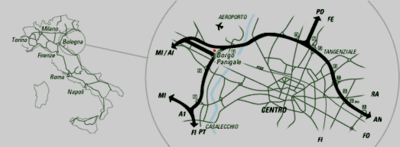
Following my post last week about the meaning of Ducati, here’s some breaking news on Ducati: a majority stake has been sold by Texas Pacific Group (an American firm) to Investindustrial Holdings (an Italian firm).
What’s interesting about this from a meaning point of view is that Ducati is now owned by an Italian corporate entity, rather than by an American corporate entity. Does it matter that the firm is now in Italian hands? On the one hand, Ducati has certainly thrived for the past decade under American ownership. On the other, the Ducatisti seem to think so — they’re already saying something along the lines of "Finally, Ducati is Italian".
I’m not so sure the nationality of ownership really matters to the meaning of a very nationality-centric brand like Ducati, so long as its deep roots in Borgo Panigale continue to be celebrated. Mini, the quintessential British car, is owned and produced by a very Bavarian company called BMW. Nor do I think it’s really important where the nationality-centric object gets made. For example, the BMW M Coupe, perhaps the most radical expression of BMW brand values ever produced, was made in the United States. But critically, it was designed in Germany, by German Engineers.
So what matters? I think what matters is that the people designing the offering really "get" — and have control over — all the tacit cultural markers that end up embedded in any designed object. To the extent that one needs to live in a culture to really understand it, designers should probably live there if they are engaged in creating offerings that are largely differentiated on the basis of meaning, rather than functionality.
What do you think?


